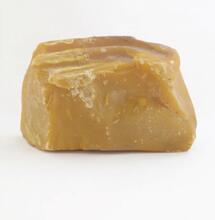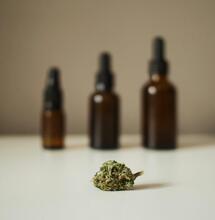Exploring Terpenes: Beta-Caryophyllene

Beta-caryophyllene is a terpene found in all varieties of cannabis and various other plants including pepper, sage, rosemary, and hops. This spicy-smelling terpene has particular medical properties.
Beta-caryophyllene, or caryophyllene, is different from alpha-caryophyllene, also known as humulene, which is found in plants such as hops, sage, and ginseng.
Consuming Beta-caryophyllene in isolation will not give you any psychoactive effects. But in cannabis, it interacts with the cannabinoids THC, CBD and CBN.
It binds to the CB2 receptor of the endocannabinoid system, which is found in humans and animals. THC binds to the CB1 and CB2 receptors.
Beta-caryophyllene is noticeably present in some quantity in all varieties of cannabis. This is one reason why its scent is used, in synthetic form, to train police dogs to detect cannabis.
In some varieties of cannabis, Beta-caryophyllene can represent more than 25% of the total terpenes. Some varieties that contain Beta-caryophyllene are very peppery and can tickle your nose and even make you sneeze. Strains with a diesel-like smell also contain Beta-caryophyllene.
Many indica, sativa, and hybrid strains contain the terpene Beta-caryophyllene in higher quantities including Sour Diesel, Girl Scout Cookies, GG#4, Wedding Cake, Gary Peyton, Biscotti, Chemdawg, Gelato, Bruce Banner, Bubba Kush, Super Skunk, and many others.
Beta-caryophyllene is a component of the essential oils of many plants. In isolation, it appears as a clear yellow liquid. You can buy Beta-caryophyllene naturally or synthetically. The hydroxylation product of Beta-caryophyllene or caryophyllene alcohol is used as a fragrance ingredient in many cosmetic and non-cosmetic products. It is also an ingredient in shampoos and faces creams and a flavoring agent in some food products.
The chemical properties and high energy densities of Beta-caryophyllene, caryophyllene alcohol and their stereoisomers also make them attractive candidates for replacing petroleum-derived fuels.
Beta-caryophyllene has the particularity of binding to the CB2 receptor. It is sometimes considered a cannabinoid terpene that may have medical properties.
Anti-inflammatory
Scientific studies have shown that Beta-caryophyllene reduces inflammation in the brain as well as chemicals that cause oxidative stress associated with inflammation. The anti-inflammatory properties of Beta-caryophyllene may improve the brain’s protection against swelling and inflammation in a stroke. It may also help protect the gut. Studies in mice have shown that treatment with Beta-caryophyllene helped reduce intestinal inflammation.
Antibacterial and Antimicrobial Properties
Studies have shown that Beta-caryophyllene may help fight the buildup of bacterial plaque. It is a potential natural alternative to medications like chlorhexidine. It helps fight microorganisms like Streptococcus pneumonia, Haemophilus influenza, and E. coli, which can cause infections.
Mood Improvement
Mice treated with 50 mg/kg of Beta-caryophyllene showed improvement in tests measuring anxiety, depression, and compulsive activity. Harnessing this effect for humans offers exciting possibilities for natural alternatives to often addictive anxiolytics and antidepressants.
Osteoporosis Prevention
Studies suggest that Beta-caryophyllene may be involved in the prevention and treatment of osteoporosis. It may prevent the reduction of bone density.
Help with Cancer
Beta-caryophyllene is believed to have powerful anticancer properties that may slow the growth of cancer cells.
Multiple Sclerosis
Beta-caryophyllene may reduce inflammation associated with multiple sclerosis.
More From Soft Secrets:








